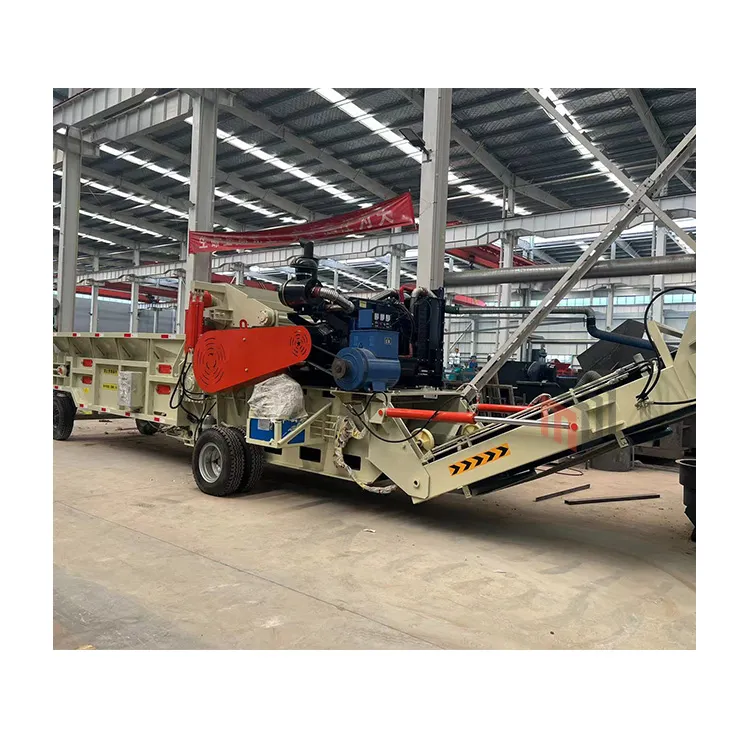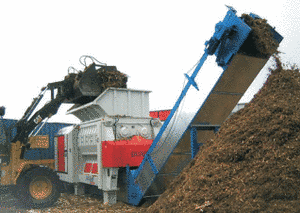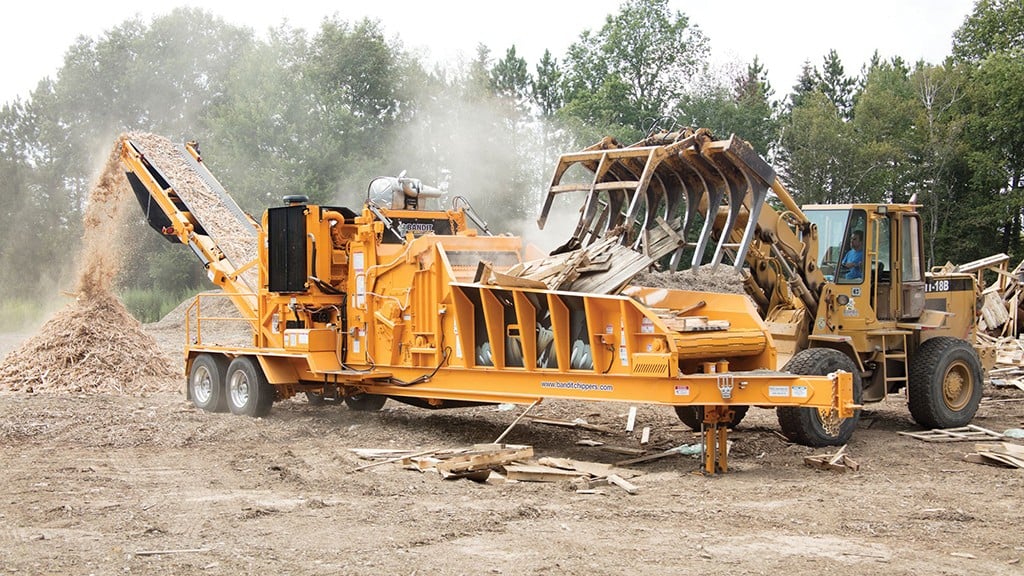Unlock the Prospective of Recycling With Advanced Wood Grinders: Streamline Procedures and Minimize Waste
In today's globe, the need for efficient waste management and lasting remedies has become increasingly vital. One such remedy that holds wonderful pledge is the advanced wood grinder, a modern technology that has the possible to unlock the real capacities of reusing. By minimizing and simplifying procedures waste, these mills offer a novel approach to tackling the difficulties of wood waste processing. What precisely makes these machines so effective? Exactly how do they enhance recycling procedures and make the most of source application? And perhaps most significantly, exactly how do they add to decreasing our environmental impact? In this conversation, we will certainly discover the responses to these inquiries and clarified the untapped potential of advanced wood grinders in transforming the recycling market.
Reliable Wood Waste Handling
Effective timber waste handling is essential for enhancing reusing procedures and making best use of the usage of this important source. Timber waste, such as lumber, lumber, and pallets, is a substantial byproduct of numerous markets, including construction, furnishings production, and demolition. To successfully manage and recycle this waste, progressed timber mills have arised as an essential remedy.
Advanced timber mills are made to successfully process wood waste into recyclable materials, such as wood chips or mulch, which can be used for numerous objectives. These grinders make use of effective cutting devices and advanced shredding innovations to damage down wood waste right into smaller sized, extra manageable pieces. By lowering the size of the waste, the mills assist in less complicated transportation and storage.
Along with dimension reduction, advanced timber mills also play a critical duty in separating pollutants, such as nails and screws, from the wood waste. This ensures that the refined material is tidy and complimentary from pollutants, making it appropriate for a vast variety of applications.
Reliable timber waste processing not just aids enhance reusing operations but also minimizes waste. By processing and recycling timber waste, businesses can reduce their dependence on virgin resources, conserve energy, and lessen the ecological influence related to standard waste disposal methods.
Sustainability in Waste Management
Promoting lasting practices and environmental responsibility, waste monitoring in the context of timber processing entails carrying out effective and environmentally friendly techniques. In today's world, where environmental issues are at the leading edge, it is vital for markets to take on lasting waste management practices. With the raising demand for timber items and the succeeding increase in wood waste, it has actually ended up being important to discover cutting-edge services that lessen the influence on the atmosphere.
By applying efficient wood grinding methods, such as making use of advanced wood mills, the market can substantially reduce the volume of waste produced. These grinders are capable of processing big quantities of wood waste into smaller sized, more convenient items, which can after that be repurposed or recycled.
Secondly, lasting waste management concentrates on reusing and reusing materials whenever possible. Timber waste can be transformed into beneficial sources such as biomass fuel or garden compost. By repurposing timber waste, the industry can reduce its dependence on virgin materials and decrease the requirement for landfill room.
Last but not least, lasting waste management involves reducing the environmental influence of garbage disposal. Timber waste that can not be reused or reused must be dealt with in an eco liable manner. This might entail correct sorting and segregation of waste, along with using technologies that transform waste into power through procedures like anaerobic digestion or incineration with power healing.
Enhanced Recycling Operations
To enhance timber waste administration and make best use of reusing efforts, the execution of sophisticated wood mills is vital for improving recycling procedures (wood grinders). These makers use a variety of benefits that can significantly boost the performance and efficiency of recycling procedures
Among the vital benefits of innovative timber mills is their ability to process a variety of wood waste products. From pallets and dog crates to tree branches and stumps, these mills can successfully damage down wood waste right into smaller sized, extra workable items. This not just helps with simpler transportation and storage space but likewise allows the recycling of a greater volume of timber waste.

In addition, progressed wood grinders are geared up with functions that enhance security and lower downtime. These equipments are developed to operate successfully and dependably, lessening the demand for repair and maintenance. This permits reusing procedures to run smoothly and regularly, eventually boosting performance and reducing costs.
Maximizing Resource Usage
With the capability to successfully refine a wide variety of timber waste products, progressed timber mills play a pivotal function in maximizing source utilization within recycling procedures. These makers are made to efficiently convert timber waste into important read timber chips or mulch, which can after that be made use of in various markets such as landscape design, biomass energy manufacturing, and pet bed linens.
By utilizing sophisticated timber mills, recycling operations can substantially reduce the amount of wood waste that finishes up in landfills, aiding to conserve beneficial landfill space and minimize ecological influence. The processed timber waste can be repurposed and utilized as a renewable energy, adding to a much more lasting and round economy.
In addition, advanced timber grinders make it possible for reusing procedures to remove the maximum value from wood waste products. These makers have the capability to generate regular and high-quality wood chips or mulch, which can be offered her explanation as beneficial items in the marketplace. This not just creates profits for reusing procedures however likewise develops possibilities for the development of new markets and partnerships.
In addition to maximizing resource application, advanced timber mills also add to the total performance of reusing operations. These machines are designed to handle big quantities of wood waste swiftly and efficiently, minimizing processing time and labor costs. They likewise have security attributes and advanced innovations that make sure trusted and smooth operation, minimizing downtime and making the most of productivity.
Lowering Environmental Footprint

Among the essential advantages of making use of sophisticated timber mills is the production of valuable products from timber waste. These mills have the ability to transform timber waste into wood chips, compost, or biomass fuel, which can be utilized in different industries such as construction, power, or landscape design production. By changing waste into useful products, these mills add to an extra lasting and round economic climate.
Additionally, progressed wood mills are geared up with innovative technologies that boost their performance and minimize energy consumption. They are made to handle large volumes of wood waste in a short quantity of time, allowing reusing procedures to simplify their procedures and raise efficiency. This not only lowers the environmental influence of recycling operations but also boosts the general performance of timber waste monitoring.
Final Thought
In conclusion, progressed timber grinders supply an encouraging remedy to unlock the potential of reusing by enhancing operations and lessening waste. These mills make it possible for efficient timber waste processing, improve reusing operations, maximize source application, and minimize the ecological impact. wood grinders. By adopting these modern technologies, companies can add to a more sustainable waste management system, making sure the effective utilization of resources and lessening environmental influence
